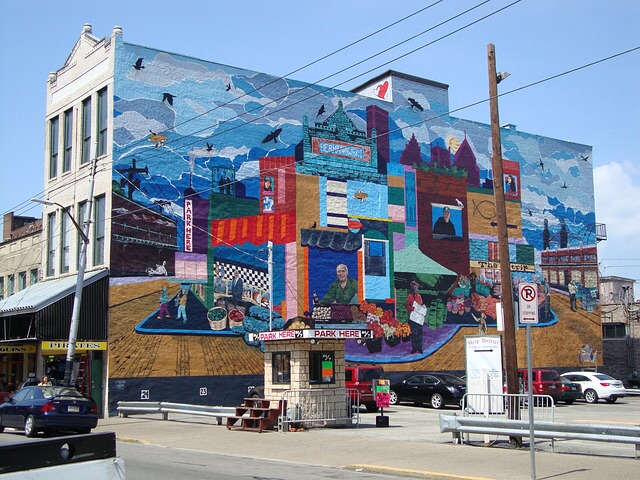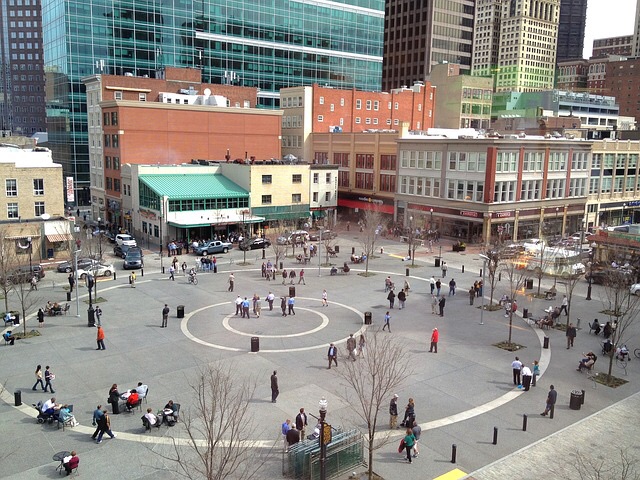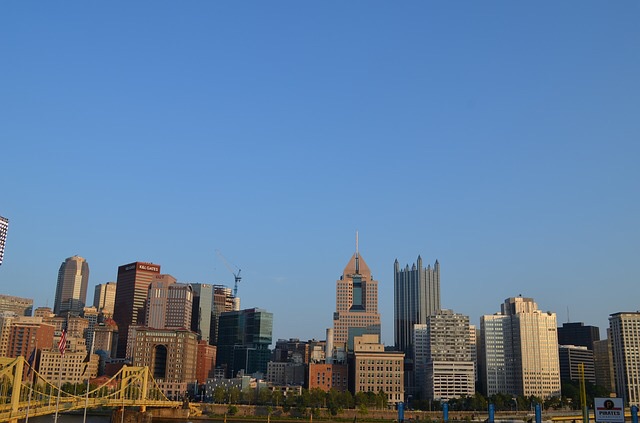Michael Chabon Photo:By Charlie Reiman (https://www.flickr.com/photos/chairface/99979664) [CC BY-SA 2.0 (https://creativecommons.org/licenses/by-sa/2.0)], via Wikimedia Commons
Over the past year, I have featured local authors, literary giants, and bestselling authors of memoirs, biographies, mysteries, and suspense thrillers.
To commemorate our first year publishing This Awful Awesome Life, which is based in Pittsburgh, I wanted to review a novel set in Pittsburgh. I chose The Mysteries of Pittsburgh by Michael Chabon, a coming of age novel set in 1980’s Pittsburgh.
Chabon was born in Washington, D.C. When he was 11, his parents divorced, and Chabon began spending nine months of the year with his mother in Columbia Maryland and the remainder of the year in Pittsburgh with his father. He attended Carnegie Mellon University for one year before transferring to the University of Pittsburgh, where he received his undergraduate degree. He received a Master of Fine Arts in creative writing at the University of California, Irvine. Chabon began writing The Mysteries of Pittsburgh while still an undergrad in Pittsburgh and completed it at UC Irvine where he submitted it as his master’s thesis. The novelist, MacDonald Harris, who was one of Chabon’s advisors, was so impressed he sent The Mysteries of Pittsburgh to a literary agent. It was published by William and Morrow Company in 1988.
Chabon followed up with Wonder Boys, which is also set in Pittsburgh. He was awarded the 2001 Pulitzer Prize for Fiction for a later work, The Amazing Adventures of Kavalier & Clay.
Chabon’s writing is rich and complex. His characters are damaged in some way and struggling to find love and acceptance without fully comprehending what they seek. If you are easily offended by stories containing references to sex and sexual orientation, this is probably not the book for you.
After graduating in the spring from the University of Pittsburgh, Art Bechstein, the protagonist of The Mysteries of Pittsburgh, hopes for one last summer of adventure before he assumes the life carefully planned for him by his father. Bechstein’s father launders money for the mob – a detail Art has carefully hidden from even his closest friends. Adamant his son will have a legitimate career, the elder Bechstein has arranged for Art to start a job in the fall with a financial firm in Baltimore.
Art discovers a different side of Pittsburgh when he meets the flamboyant Arthur Lecomte and his biker friend Cleveland, a low level player in one of the city’s organized crime families.
Chabon’s powerful descriptions bring the city to life as Art’s adventures with Arthur and Cleveland take us through the streets of downtown Pittsburgh, its universities, museums and the Pittsburgh neighborhoods of Oakland, Squirrel Hill, Shadyside, Mount Washington, East Liberty, Fox Chapel and Highland Park.
Art continues to seek out Arthur’s company even after beginning a relationship with Phlox, a young woman from the university library. Even as Art and Phlox grow closer, his attraction to the openly gay Arthur becomes stronger.
Chabon explores the fluidity of sexuality from different perspectives. Art is in the unenviable position of loving two very different people and needing what each has to offer.
To Phlox, Art’s affair with Arthur is an abomination…a personal insult to their relationship. Arthur sees their relationship as inevitable claiming he knew they would be lovers from the first moment they met. For Arthur, the real question is why Art is attracted to Phlox. Surprisingly, Cleveland is the most accepting. Though he was never sexually attracted to Arthur, Cleveland was drawn to him in other ways.
When Cleveland attempts to move up in the crime family, it brings Art closer to his father’s world threatening his relationships with Phlox, Arthur and his father. Will he be allowed to go back to his safe, carefully planned life? Does he want that life? If not, will he have the courage to live and love on his own terms?
Michael Chabon’s novels and short stories are available in bookstores and on-line. For more information about his writing, visit his website, michaelchabon.com.
Michael Chabon Photo:
By Charlie Reiman (https://www.flickr.com/photos/chairface/99979664) [CC BY-SA 2.0 (https://creativecommons.org/licenses/by-sa/2.0)], via Wikimedia Commons






![Michael Chabon Photo:By Charlie Reiman (https://www.flickr.com/photos/chairface/99979664) [CC BY-SA 2.0 (https://creativecommons.org/licenses/by-sa/2.0)], via Wikimedia Commons](https://images.squarespace-cdn.com/content/v1/59651c6720099eb2f4da01e5/1520981002743-93PA7RIZF5WC0MHWW7YW/Chabonsigning+TMOP1.jpg)





